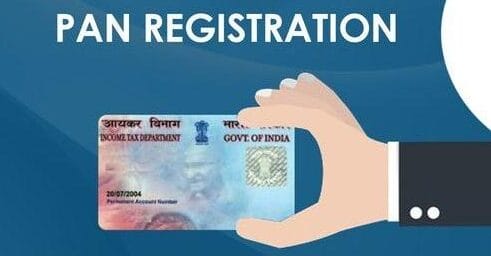GST Audit in India is a process to verify the accuracy and compliance of GST filings and returns submitted by taxpayers. Here’s an overview of GST audit:
Types of GST Audit
1. Mandatory GST Audit
- Annual GST Audit: Conducted for taxpayers whose aggregate turnover during a financial year exceeds Rs. 2 crores. This audit is conducted by a Chartered Accountant or a Cost Accountant.
2. Special GST Audit
- Special Audit: Ordered by the GST officer if they believe the taxpayer’s accounts are complex or if it’s necessary to protect revenue interests. It can be conducted by a Chartered Accountant or a Cost Accountant nominated by the Commissioner.
Objectives of GST Audit
- Verification of Tax Liability: Ensure correctness in the calculation and payment of GST.
- Verification of Input Tax Credit (ITC): Validate the eligibility and correctness of ITC claimed by the taxpayer.
- Compliance Verification: Ensure compliance with the provisions of the GST Act and rules.
- Identification of Non-compliance: Identify any instances of non-compliance or evasion of GST.
- Improvement of Compliance: Provide feedback and recommendations for better compliance in the future.
Process of GST Audit
- Notice Issuance: The taxpayer receives a notice at least 15 days prior to the audit, specifying the date, time, and place of the audit.
- Preparation by Taxpayer: Gather and present all relevant records, accounts, and documents required for the audit.
- Audit Conduct:
- Examination of books of accounts, invoices, returns, and other relevant documents.
- Verification of correctness of turnover declared, tax paid, and ITC claimed.
- Examination of compliance with GST laws and rules.
- Audit Findings:
- The auditor prepares an audit report highlighting discrepancies, if any, found during the audit.
- The report includes recommendations for corrective actions or improvements.
- Response by Taxpayer:
- The taxpayer may respond to the audit findings and discrepancies identified.
- Provide explanations or rectify errors, if any.
- Conclusion:
- The audit report is finalized and submitted to the GST officer.
- The taxpayer may be required to pay any additional tax liabilities or penalties based on audit findings.
Documentation Required for GST Audit
- Financial Statements: Audited financial statements for the relevant period.
- GST Returns: Copies of all GST returns filed during the audit period.
- Invoices and Records: Purchase invoices, sales invoices, and other relevant documents supporting transactions.
- Input Tax Credit Details: Records of input tax credit claimed, along with supporting documents.
Importance of GST Audit
- Enhanced Compliance: Ensures accurate calculation and payment of GST, reducing the risk of penalties.
- Detection of Errors: Identifies errors in tax calculations, turnover declarations, or ITC claims for timely rectification.
- Preventive Measure: Acts as a preventive measure against tax evasion and non-compliance.
- Business Efficiency: Provides insights for improving accounting systems and internal controls.
GST Audit plays a crucial role in ensuring transparency, compliance, and accuracy in GST filings and payments. Businesses should maintain meticulous records and prepare thoroughly for audits to comply with GST regulations effectively. Engaging with experienced professionals can facilitate smooth GST audit processes and minimize compliance risks.
At Ujjwal Gupta & Co
We, at Ujjwal Gupta & Co, are dedicated to delivering personalized, high-quality solutions tailored to meet your financial and business needs. With our team of professionals and a client-first approach, we ensure that every challenge is met with expert guidance and strategic insight.
We are dedicated to ensuring your business’s success by providing best service practice available in the industry and that too at a cost effective pricing. Our team of experts is excited to work with you and provide the support you need to thrive in the Indian business landscape.
Our only motive is to create Value for Our Clients and accordingly, have a Client Value System at our Office.
So, let us help you navigate the complexities of finance and compliance, empowering you to focus on what matters most — growing your business. Get in touch today, and take the first step towards financial peace of mind.
A GST audit is an examination of the records, returns, and other documents maintained by a taxpayer to verify the accuracy of turnover declared, taxes paid, refunds claimed, and input tax credit (ITC) availed, among other aspects. The purpose of the audit is to ensure compliance with the provisions of the Goods and Services Tax (GST) Act.
A GST audit is mandatory for taxpayers whose aggregate turnover exceeds ₹ 5 crore in a financial year. Such taxpayers must get their accounts audited by a Chartered Accountant (CA) or a Cost Accountant and file GSTR-9C, the reconciliation statement, along with the audited financial statements.
The GST audit report, along with GSTR-9C, must be filed by December 31 of the subsequent financial year. For instance, for the financial year 2022-23, the audit report must be submitted by December 31, 2024.
GSTR-9C is a reconciliation statement that compares the figures declared in the annual return (GSTR-9) with the audited financial statements of the taxpayer. It must be certified by a Chartered Accountant (CA) or a Cost Accountant and is required for taxpayers whose annual turnover exceeds ₹5 crore.
There are three types of GST audits:
- Turnover-based Audit (Section 35): Required for taxpayers with turnover exceeding ₹2 crore, conducted by a CA or Cost Accountant.
- Departmental Audit (Section 65): Conducted by the GST authorities on the taxpayer’s records and documents.
- Special Audit (Section 66): Ordered by the GST Commissioner in cases where the complexity of the accounts warrants such an audit, conducted by a CA or Cost Accountant appointed by the Commissioner.
The following documents are generally required for a GST audit:
- GST registration certificate.
- GST returns (GSTR-1, GSTR-3B, GSTR-9, and GSTR-9C).
- Sales and purchase records.
- Input tax credit (ITC) documents.
- Financial statements (balance sheet, profit and loss account).
- E-way bills, tax invoices, and payment receipts.
- Records of advances received, supplies made, and taxes paid.
If a taxpayer fails to comply with the mandatory GST audit requirements, the following consequences may occur:
- Penalties: Penalties may be imposed under the GST Act for non-compliance or late filing.
- Suspension of ITC: Input Tax Credit (ITC) claims may be restricted or denied if discrepancies are found.
- Further scrutiny: The taxpayer may be subjected to further investigation or scrutiny by GST authorities.
- Cancellation of GST registration: Persistent non-compliance may lead to the suspension or cancellation of GST registration.
The scope of a GST audit includes:
- Verifying the accuracy of turnover, taxes paid, refunds claimed, and ITC availed.
- Ensuring proper maintenance of records as required under GST laws.
- Checking for any discrepancies between the financial statements and the returns filed.
- Examining tax liabilities under reverse charge and the correct application of GST rates.
If discrepancies are discovered during a GST audit and additional tax liabilities are found, the taxpayer may be required to:
- Pay the additional taxes along with interest.
- In cases of deliberate evasion, a penalty of up to 100% of the tax amount may be imposed.
- Other penalties for non-compliance as prescribed under the GST law, depending on the severity of the discrepancy.
Yes, the GST department can order a special audit under Section 66 of the GST Act if the Commissioner believes that the complexity of the taxpayer’s accounts requires it. This may happen in cases where the taxpayer’s records are not clear or where significant discrepancies or inconsistencies are observed. The special audit is conducted by a CA or Cost Accountant nominated by the Commissioner, and the report must be submitted within the time specified in the order.
Why Choose UGC?

Client Centric Approach
Client is the key driver of our service offerings. Our approach to service offerings is based on a client centric and customized approach. Our specialized teams are a mix of technical and industry experience in order to serve clientele for their specific needs.

Team Work
We have built high performing teams supported by strong work ethic. Our team is a mix of experts, professionals and support staff from technical and varied academic, social and ethnic backgrounds. We believe diversification plays a vital role in motivating the team.

Quick Turnaround
We always endeavour for a quick turnaround time to serve our clientele. We are supported by an experienced and client focussed support teams to offer timely services to our clientele. In case of any business exigencies and time sensitive service requirements, you can always count on us.

Open Communications
We believe that open communication is the core principle in order to demonstrate trust, build long lasting and valuable relationships with clientele. We are committed to ensuring transparency in communication, service offerings and delivery. We provide professional services to our clients.

Client Value System
We value for the Client time and thus, we offer services that are value for money. Quality professional services are provided to our clients, so that they are able to achieve their desired results. We are a quality trademark in the industry and thus, our clients count on us always.

Quality in Delivering Work
Our service offerings are driven by quality and reviews at every level. We strive to provide a qualitative and value-added delivery to our clientele. At all times, we endeavour to provide exceptional client service by meeting client expectations and driving client satisfaction.



















